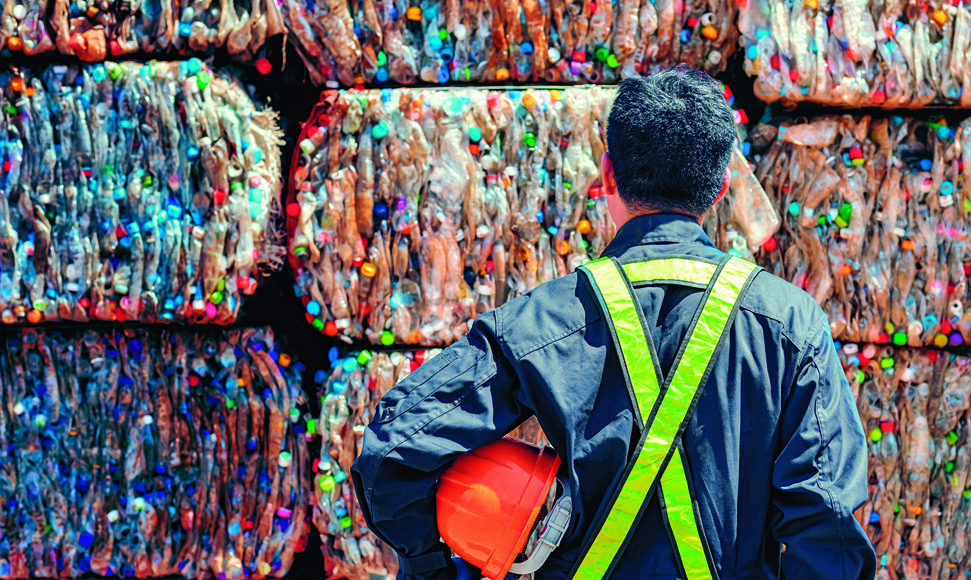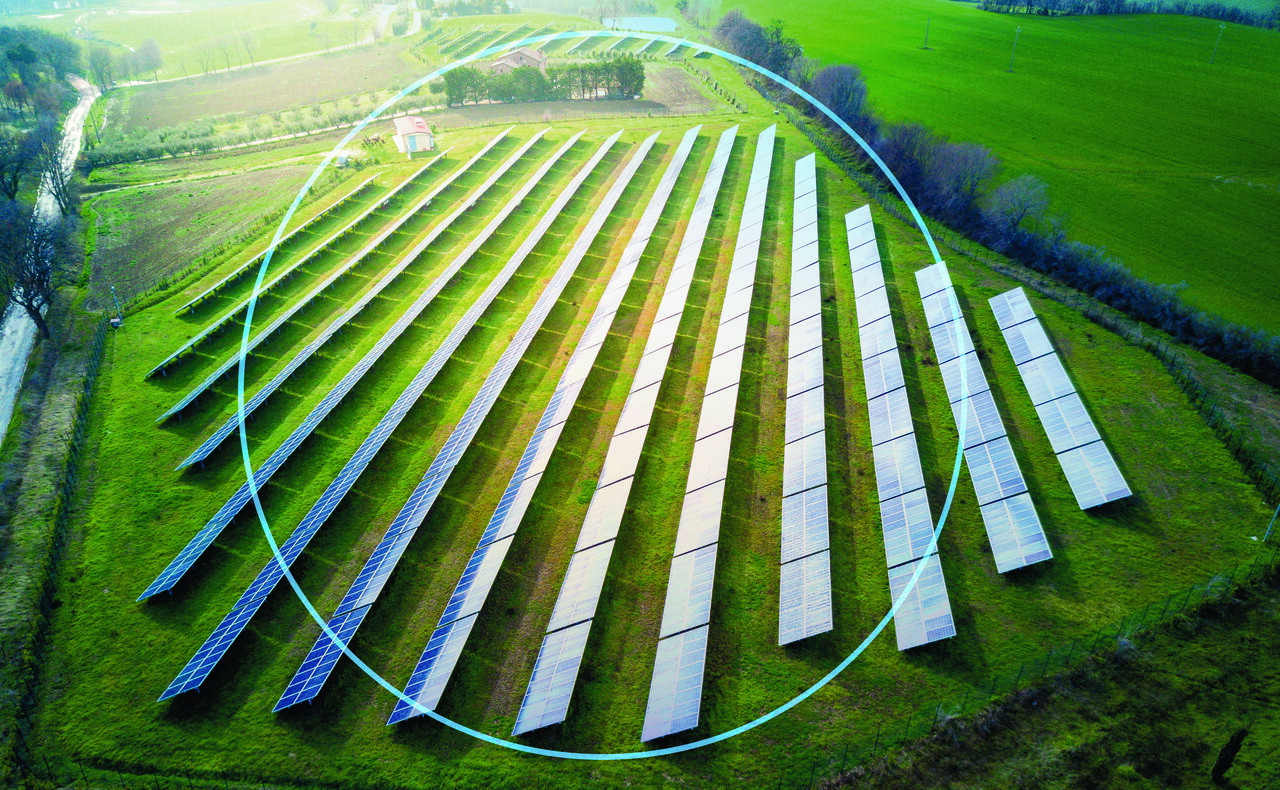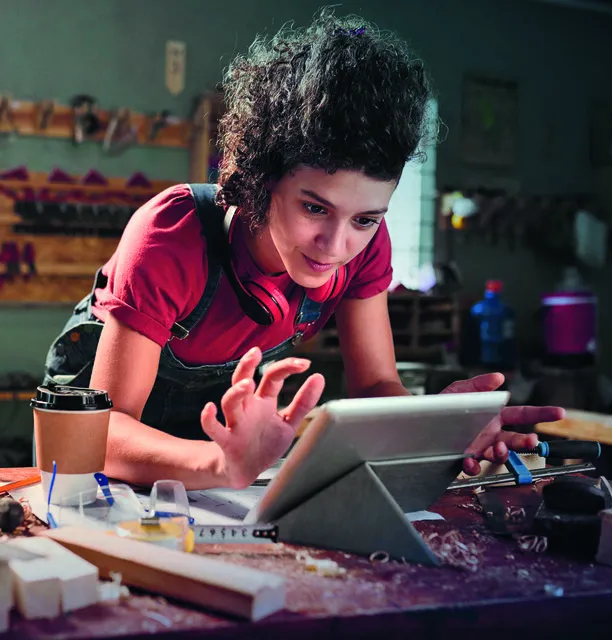Shaping the Circular Economy through Collaboration and Sustainable Innovation
Dassault Systèmes is partnering with organizations worldwide to drive sustainable innovation, reduce e-waste and facilitate circular economy practices
UNTiL NOW
Businesses were operating with a consumption model that took more from the planet than it gave back
FROM NOW ON
Through partnerships and software solutions, we’re helping our clients – and our employees – to imagine, create and deliver a circular approach that puts people and the planet at the heart of everything
It’s become clear that working on sustainability in isolation isn’t enough: collaboration is required to deliver a systemic transformation of the global economy. A network of sustainability-minded stakeholders, with complementary know-how and a wide scope of expertise, are joining forces to seize new eco-friendly possibilities revealed by combining science and virtualization. Our 3DEXPERIENCE platform provides a holistic view of production chains, to identify ways to make them more circular and carbon efficient. Our science-based virtual twins allow unlimited opportunity to experiment virtually on the design of products and processes to manage operations and apply circular design principles at every step of a product’s lifecycle. And promoting STEM jobs to women is key to unlock a more diverse talent pool to lead the sustainable innovation of tomorrow
Accelerating climate action through partnerships
Our sustainability strategy is based on three priorities: committing to environmentally sustainable operations, designing solutions that enable our customers to reduce their environmental footprint and developing human capital with respect to diversity and ethics. Partnerships help fuel our mission.
Collaborating for sustainable innovation
At Dassault Systèmes, we’re focused on driving sustainable innovation through transformative solutions. One way we accomplish this is by building trusted, mutually enriching partnerships with institutions, academia and systems integrators. Collaborating with these organizations provides an environment for sharing knowledge, advocating for beneficial policies and co-creating solutions for maximum impact. Here are two examples of how we team with leading organizations and initiatives:
Reducing e-waste with EECONE: the European ECOsystem for greeN Electronics
EECONE is a collaborative public initiative which aims to reduce e-waste in Europe. Forty-nine entities in 16 countries are working together to propose effective ways of reducing e-waste across the entire value chain. Dassault Systèmes brings the potential of virtual twins to navigate this complex problem, by considering generation of waste from the earliest stages of the design lifecycle to end of life of electronic equipment.
Reducing e-waste with EECONE: the European ECOsystem for greeN Electronics
EECONE is a collaborative public initiative which aims to reduce e-waste in Europe. Forty-nine entities in 16 countries are working together to propose effective ways of reducing e-waste across the entire value chain. Dassault Systèmes brings the potential of virtual twins to navigate this complex problem, by considering generation of waste from the earliest stages of the design lifecycle to end of life of electronic equipment.
Scale up circularity with the Ellen MacArthur Foundation
Scale up circularity with the Ellen MacArthur Foundation
Dassault Systèmes is a member of the Ellen MacArthur Foundation whose mission is to accelerate the transition to a circular economy by working with businesses, governments and academia to promote the adoption of circular practices and processes in the global economy. This relationship has helped us better understand how the 3DEXPERIENCE platform can help organizations facilitate transformations applying a systems approach to eliminate waste and pollution, keep products and materials in use longer and regenerate natural systems.
Analyzing conversations on climate change
In the fight against climate change, two elements will make a difference: accurate scientific measurement and collaboration among all stakeholders. To achieve the latter, we need to carefully listen to ongoing dialogue to support everyone looking to contribute within their realm. Dassault Systèmes, with Capgemini and Bloom as co-authors, set out to explore the chasm between talk and taking climate action, and in turn to study how to turn talk into action. Conducted over eight months, Social Intelligence for Climate Action analyzed English language climate conversations on social media: 14 million posts and comments and 480 interactions, including likes and comments. A sophisticated algorithm analyzed tone and emotional content – a model so refined it even considered the emotional complexity of emojis.
The study revealed that greenwashing by companies and institutions generates consumer skepticism which in turn discourages individual action. It also examined the belief held by many that technology will solve the climate emergency. Other obstacles expressed include a lack of reliable and useful information, fear about the downsides of taking action and a delegation of authority: the belief that tackling climate change is someone else’s job.
Ultimately, the study encourages organizations to consider its key learnings to better understand how to build an efficient and actionable strategy that convinces and enables individuals to do their part to tackle climate change, while – in their professional capacity – still putting business efficiency at the heart of their daily operations. Further, it encourages collaboration and social listening to help industry innovate differently by mobilizing the collective imagination.
Coaching our employees to reduce carbon footprint
We believe and take an active role in developing well-informed employees to become actors to meet the challenges of transitioning to a carbon neutral society. To this end, we organize events designed to help our people discover better actions to improve their own carbon footprint.
How can virtual universes contribute to building a more sustainable world? Understanding this question was part of our 2023 internal learning program aimed to make our more than 23,000 global employees the best advocates of our commitment to sustainability. We offered workshops, conferences and collaborative challenges to raise awareness on key issues and how we’re addressing them – and sharing tangible ways they can make a difference in their personal and professional lives.
Our April Sustainability Month featured local, global and educational opportunities to guide employees to do their part to minimize their individual footprints and protect the planet for future generations. One global event taught about the importance of data clean-up to help employees be more mindful of the carbon impact of their digital footprint. More than 60 offices participated in local challenges such as garbage cleanups and food donations, led by members of the 3DS Green Team, our global community of employees actively advocating for a more sustainable future. Challenges across all participating sites resulted in 40.8 tons of CO2eq saved!
Our September Sustainable Innovation Month included programs to demonstrate how innovation can help bring about sustainable transformations. More than 1,400 employees participated in “individual impact” workshops to discover in a concrete and fun way what it will take for society to become carbon neutral by 2050. People learned how individual actions can have a positive impact, such as improving their carbon footprint and doing their part to reduce e-waste.
- More than 23,000
EMPLOYEES PROVIDED CLIMATE AWARENESS LEARNING PROGRAMS
- 40.8
TONS OF CO2EQ SAVED DURING SUSTAINABILITY MONTH
23,000+
EMPLOYEES PROVIDED BOTH GENERAL AND ROLE-SPECIFIC LEARNING PROGRAMS ON CLIMATE AWARENESS
40.8
TONS OF CO2EQ SAVED THROUGH ACTIONS OF THE GLOBAL COMMUNITY OF EMPLOYEES DURING SUSTAINABILITY MONTH
Addressing the gender gap in STEM jobs
It’s imperative to encourage young women to pursue studies and careers in scientific fields so that they, too, can work to build a more sustainable future for our planet. Our commitment to promoting women in STEM is aligned with our ESG commitments and aims to create a more diverse talent pool.
Jobs in the fields of science, technology, engineering and math (STEM) are set to explode in the years to come, yet women remain underrepresented in academia and professional tracks to fill these opportunities. Dassault Systèmes is committed to addressing this gender gap by promoting STEM curricula and careers for women. Here are a few examples.
We have a longstanding partnership with Sophia Academy, an all-girls school in Providence, Rhode Island (RI). Over the past ten years we have provided funding to allow underprivileged students to attend STEM events, including an annual interactive learning day.
Last year’s event at our campus in Johnston (RI) gave girls a chance to learn about our company, explore the field of engineering and try interactive technologies, offering exposure to career paths that they might not have otherwise considered.
Through our MEDIDATA teams, we support Girls Who Code, an international non-profit designed to interest young girls in STEM. Last November, volunteer employees conducted virtual technical interview prep sessions with more than a dozen career-age women to aid them in successfully negotiating this part of the hiring process.
On April 27, our team in Munich opened its doors to offer girls aged 11 and older a peek behind the scenes of our 3DEXPERIENCE Lab. This was part of Germany’s national Girls’ Day, a career-orientation project to expand the spectrum of vocational choices for women and boost girls’ self-confidence to choose a STEM path. Under the theme Your Skills, Our Future, the girls explored the world of 3D modeling and technology at hands-on centers where they learned how to digitally build their creative design ideas.
- 28%
OF WOMEN ENGINEERING GRADUATES WORLDWIDE*
*SOURCE: UNESCO SCIENCE REPORT
Making circularity desirable, achievable, scalable and profitable
Circularity is radically transforming the global economy by redefining the way products are designed and manufactured and how materials are used and recycled. Technology plays a major role in inventing and facilitating the applications of circularity processes.

We’ve been living in a linear economy – a take-make use-waste model. But we’re shifting to a circular economy – a continual loop of making/using and reusing/recycling. This transition requires rethinking how we design, manufacture and use products and services. For example, raw materials and products need to be conceived for multiple uses, because design determines a key part of the environmental impact of a product – and so integrating eco-design into product and service development allows companies to weave sustainability into the entire value network, driving a circular economy. In this shift from product to usage, companies need to create “what if” scenarios, test novel solutions and measure their impacts before implementing decisions. Dassault Systèmes makes it possible for companies to find a balance between an organization’s footprint – what they take from the planet to create products or services – and their handprint – the value they give back. In this way, companies can stop the value leakage that’s in the traditional take-make-use-waste model, in which materials and products are discarded after one use. We call this new balance the eco-bill.
Delivering circularity
Our portfolio offers a framework where circular economy practices can grow and thrive through the adoption of eco-friendly practices, designing for recyclability and exploring new materials. Our 3DEXPERIENCE platform provides a holistic view of production chains. Our science-based virtual twins offer companies unlimited opportunity to experiment for maximum sustainability and to apply circular design principles at every step of a product’s lifecycle.
Reaching scalable, profitable and desirable circularity
This is just a first step. We need to also help our customers design their waste to nurture circularity, to come up with materials that are biodegradable and easy to recycle. We’re helping make the circular economy not only desirable, but achievable, scalable and profitable. Progress towards this is underway, but more can be done. Our new program “Circularity in Action” brings together expertise from 17 experts from our 12 industries and 6 of our brands to answer pressing questions on achieving circularity.



